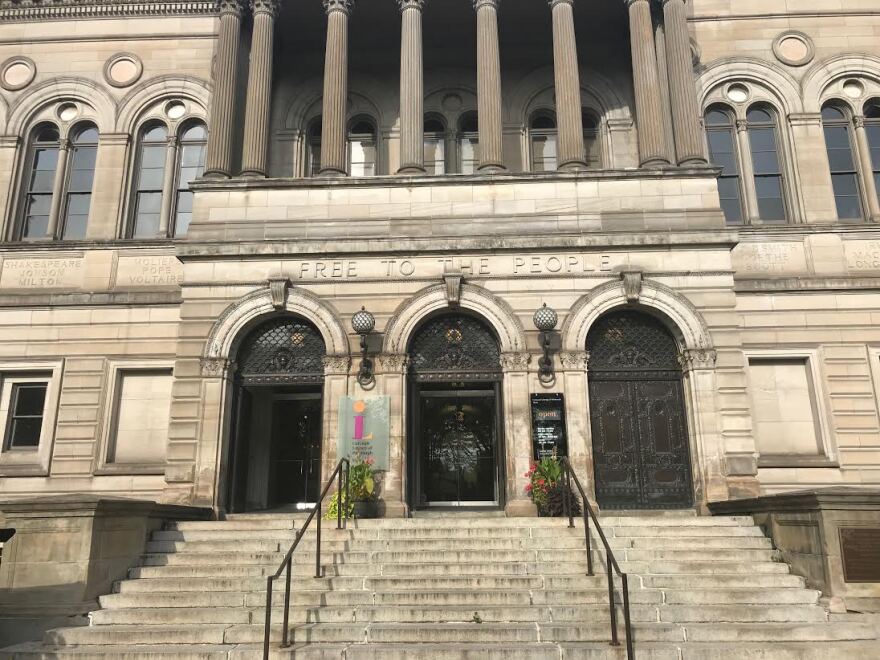Nearly 60 percent of Carnegie Library of Pittsburgh librarians, library assistants, clerks and IT professionals who cast ballots Wednesday voted in favor of unionizing.
A couple dozen people applauded and hugged after the votes were tallied at the library system’s main branch in Oakland.
According to the National Labor Relations Board, 321 employees were eligible to vote from 19 branches. Of those, 173 voted for and 106 against forming a collective bargaining unit with the United Steelworkers. There were 13 challenged votes.
Isabelle Toomey is a librarian at the downtown branch who says she wants a seat at the table.
“It means we have a voice about the job we all care about. It means that we have protection and we can have secure, happy lives doing jobs we love for people who deserve it, too,” she said.

A statement issued after the vote from the Carnegie Library of Pittsburgh states that the library system values its staff.
“Understandably, this has been an emotional and challenging time. This was a big decision for the future of the Library and one that affects our entire community. There have been strong feelings and spirited debate from staff on both sides of the union issue,” according to the statement. “We respect the process and thank our staff for making their voice heard.”
Organizers say they want a more inclusive and equitable work environment and a stronger voice when it comes to decisions about pay, benefits, hiring and promotions.
But not all say those desires require union representation.
Henry Dragenflo, youth services librarian at Woods Run branch, said he thinks the union is unnecessary and could negatively impact the system. He was one of the 106 to vote no.
“I think that the Carnegie Library of Pittsburgh is a special place where employees are encouraged and are motivated to make things better for individuals and consider individuals. And they have,” he said.
He referenced stories posted in a Facebook group by others who weren’t in favor of either a union in general or being represented by the United Steelworkers.
“I know that there are a lot of staff out there who know their managers are willing to make things better for them. There are also a lot of examples of how employees put their voices together … or where managers considered what staff had to say when they said it all together,” he said.
He also worries that union representation will impact diversity in the system as internal promotions could mean fewer outside hires.
Dragenflo said some employees have expressed interest in forming a ‘staff concerns council’ where employees could express grievances without having to involve the union.
James Graham, a teen library assistant at the Hazelwood branch, said for him, a union means having a way to fight for the libraries people deserve.
“We think a union is the best way to represent the community’s interest and the public’s interest within the walls of the library,” he said.
The workers filed for a union election with the National Labor Relations Board in June, a year after conversations began. Library drivers and environmental workers are already represented by the Teamsters and SEIU.



